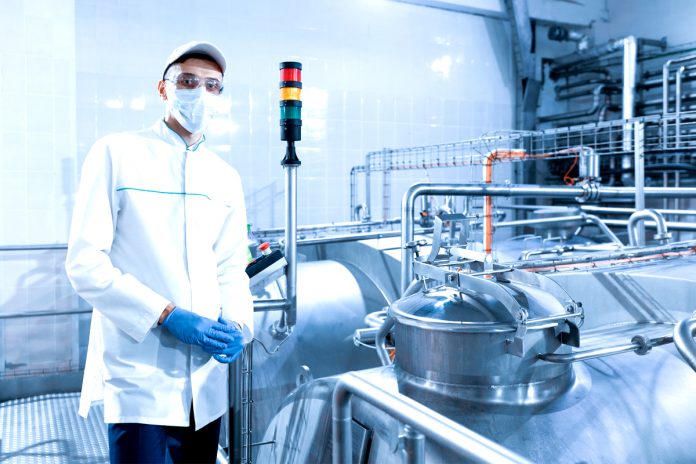As the world continues to deal with changes brought about by the coronavirus, we’re continuing our “Changing Habits” series. This week we spoke with executives from Precision Extraction Solutions, Curaleaf, and Glass House to find out how cannabis manufacturers have adjusted operating procedures during COVID-19.
While a manufacturer may be less exposed to the public than a dispensary manager, Michael Lewis, vice president of business development at Precision Extraction Solutions, still worries about exposing his team members to the virus. “A significant component of our operation involves in-person equipment installation and staff training, which we put on temporary hold as shelter in place orders were put into effect to protect our employees and clients,” Lewis explained.
“To continue running operations with as little disruption as possible, we pivoted to conduct all of our training and installations virtually, which is working well.”
Lewis is hopeful that Precision will soon be able to hold live demonstrations, even if they are conducted a bit differently than they were previously.
“As restrictions begin to loosen up, and our employees feel safe enough to do so, we will begin to cautiously resume our in-person training and installations while providing the appropriate protective gear, abiding by social distancing guidelines, and taking all necessary precautions,” Lewis explained.
While many cannabis executives may maintain their own internal benchmarks for when it will be safe to return to business as usual, Curaleaf‘s Senior Vice President of Manufacturing Jessie Kater knows he needs to take his direction from regulators.
“Like all cannabis operations in the country, Curaleaf operates under state guidelines,” Kater said. “Because of this, we also operate plants in almost all of the states that we sell product in. The scale of each operation is different, but all facilities share the challenge of meeting consumer demand while ensuring the safety of our products and staff.”
Safety during COVID-19 starts with the basics and Kater knows his staff needs personal protection equipment (PPE), the ability to maintain safe distances from one another, and clean equipment to work with. “From the design and controls in our facilities to our PPE, Curaleaf maintains stringent cleaning protocols and product safety procedures to meet the highest level of good manufacturing practice,” Kater said.
According to Kater, Curaleaf is building on the already stringent safety protocols set in place a long time ago.
“We’ve implemented alternative production plans at many facilities to minimize the number of staff in each area of operation, while at the same time optimizing workflows to maximize social distancing,” he said. “We have greatly increased the frequency of our facility and equipment cleaning protocols, and our procurement department has worked incredibly hard to ensure the constant flow of cleaning supplies and PPE.” ᐧ
Glass House President Graham Farrar, who said he has been able to retain all employees (and is still providing benefits such as healthcare) during the crisis, knows the wide-open spaces his team occupies are particularly advantageous during a global pandemic.
“Luckily at a greenhouse and with a half million square feet to work with, staying six feet apart and doing the social, physical distancing is not really a challenge,” Farrar said. “Actually, with four or five people in an acre, it’s not six feet apart, it’s more like sixty or a hundred feet apart without a challenge, so we’ve done a number of things to further enhance that, including mandating that everyone wear face coverings.”
To further reduce any chance of team members co-occupying close spaces, Glass House has made changes to its work schedules.
“We’re running night shifts again so that we can get the same amount of work done but not have to have all the people on the processing side,” Farrar explained. “By staggering shifts, we are able to have people working on alternating schedules, so being socially distant isn’t a challenge at times like lunch breaks, where people would tend to come together.”
Glass House has also hired a cleaning crew to ensure that work spaces are safe.
“The cleaners do a really thorough job so we know that the next morning when we come in, we’re coming in to a sterile environment,” Farrar said. “Then we have a screen, which is a questionnaire the CDC has provided that every employee answers. If they can’t answer ‘no’ to all four questions, then we send them home so they don’t come to work. We pay them, so it’s not a detriment to our employees.”
Glass House is now also checking employee’s temperatures and has modified its human resources policy to no longer require a note from a physician if employees require more than three sick days. Employees quarantined by a physician’s recommendation qualify for fourteen days of paid sick leave.
Farrar has always had a long game in mind for Glass House. The company owns the property and buildings on it—freeing them from the burden of operating on borrowed money.
“That means we have no mortgages, no debt, no leases, and no landlords, which puts us in a really good position if this continues to drag out and we go through a major recession—we’re in a really good spot to weather the storm.”









